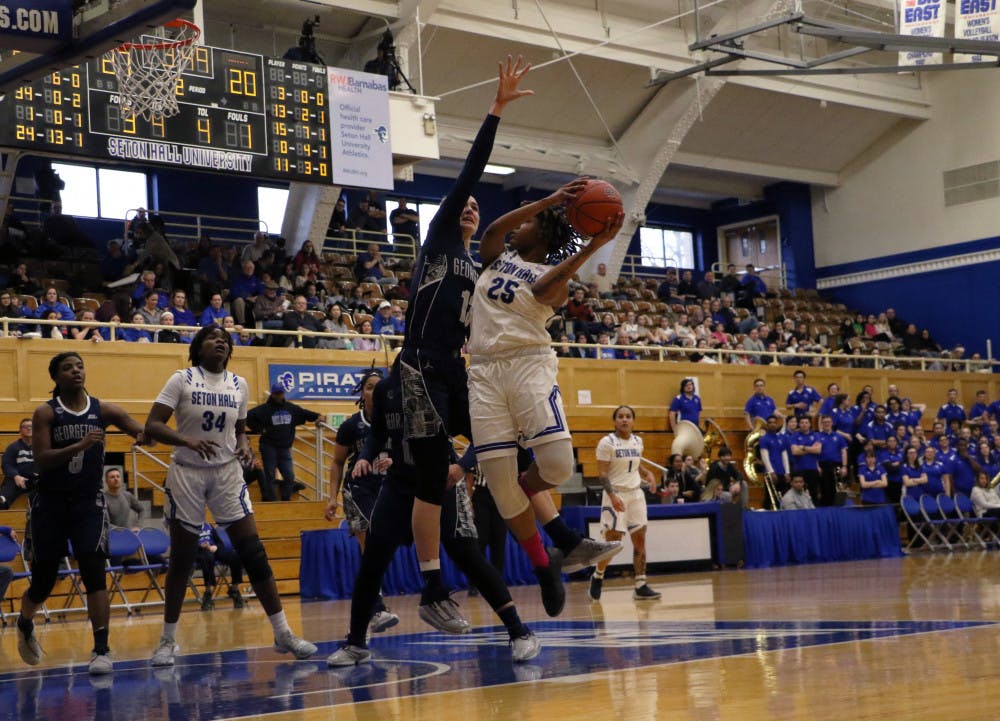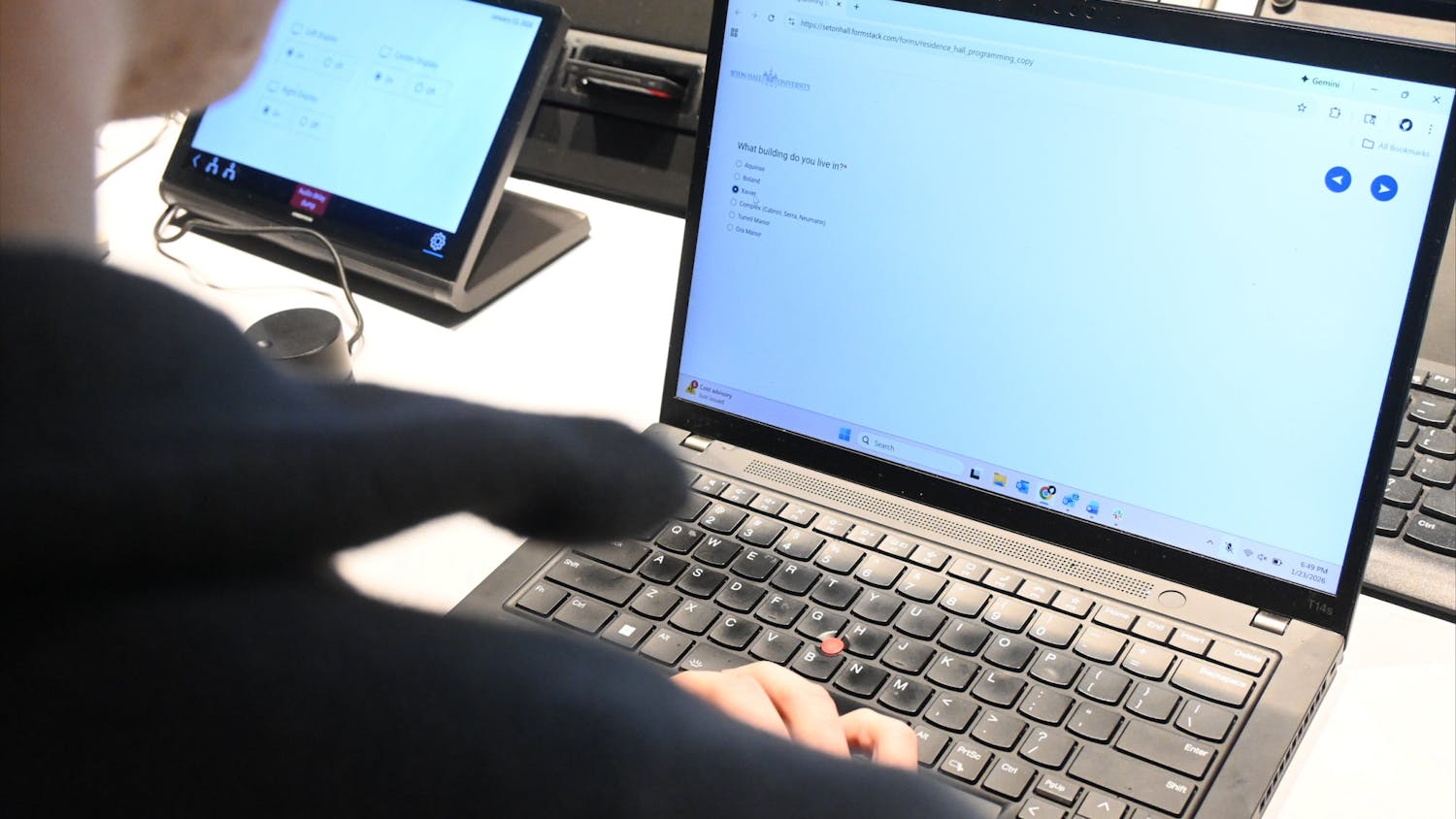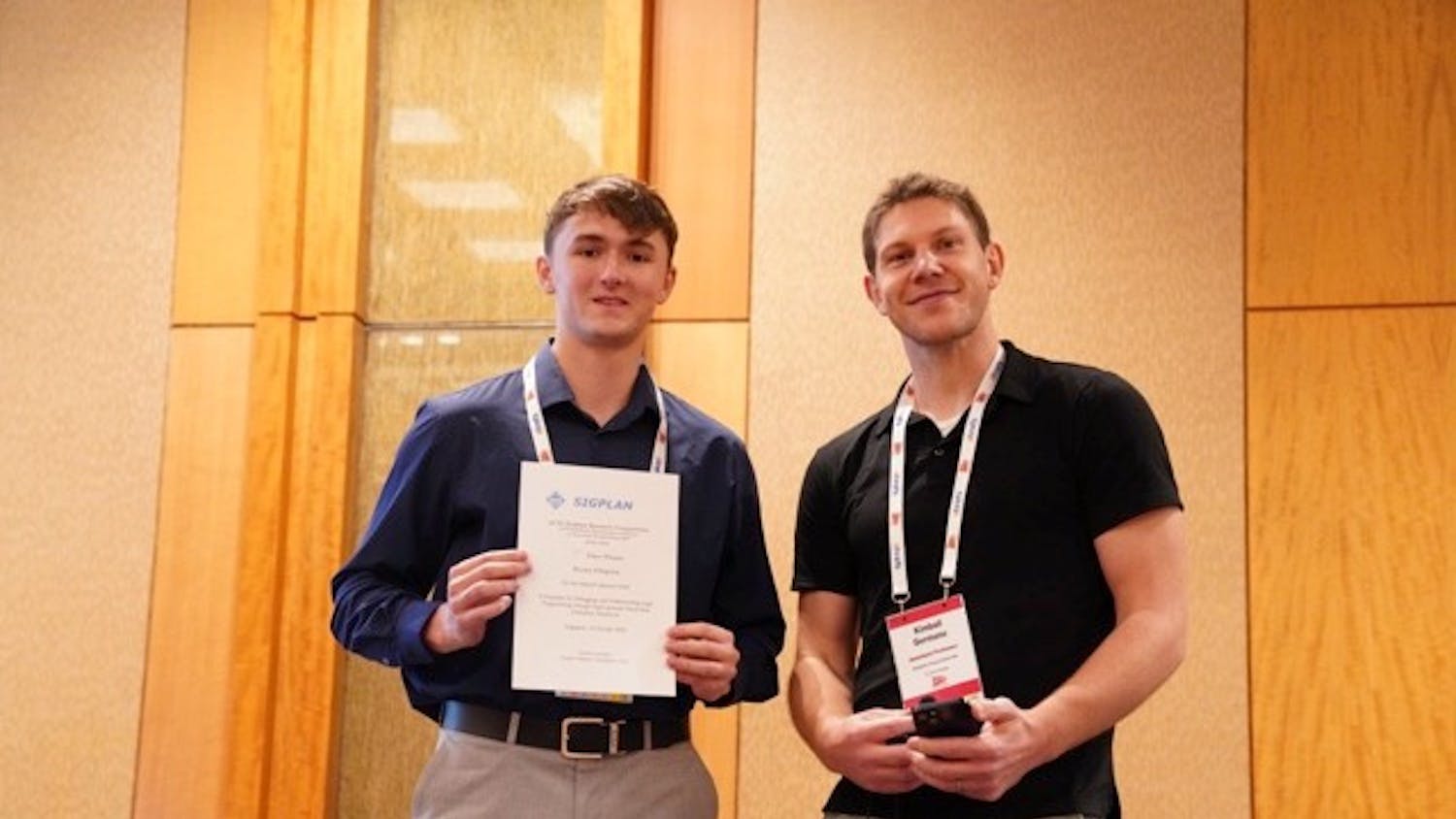[caption id="" align="alignnone" width="250"] shu.edu[/caption]
“The time came to put the no-contact order on her after one specific night,” a student who wished to remain anonymous said in an email about placing a no-contact order on his previous girlfriend in spring 2015.
“I invited her to come hang out with me and my current girlfriend because I was trying to salvage some sort of friendship, but at the end of the night when we were alone she threw a huge fit and had a meltdown. She was yelling and cursing at me and even punched me in the back of the head three times,” he said.
He said that prior to this event he felt that his ex-girlfriend was stalking him on campus after finding out about his current relationship. He added that the ex-girlfriend went to staff members and falsely accused him of cheating on her and abusing her.
“I went straight to the dean’s office and told him the situation. He immediately sent out an email explaining the no contact order which basically said there was no communication between the two of us, I was not allowed to communicate with her friends and she wasn’t allowed to speak to mine, and if she were to speak to someone I knew then she would have been punished by the University,” he said.
The student said that he felt the NCO made it easier for him to move on with his life. He added that his ex-girlfriend has since graduated from Seton Hall, making his life “much better.”
“In my opinion the system could be better because the restrictions placed by the no-contact order weren’t strong enough because I was still seeing her in places I went. Given that it’s a small campus I understood that I was going to see her sometimes, but it was more than I had hoped,” he said.
Winston Roberts, assistant dean of students in the department of Student Life, said in an email interview that a no-contact order can be requested by a student for a variety of reasons.
“Depending on the situation a no-contact order can be recommended by Community Development, Housing and Residence Life, and Public Safety and would be typically given in response to a reported incident,” Roberts said.
No-contact orders restrict perpetrators from being allowed to be in the same space as the victim, which can include the same room or, at times, the same building.
No-contact orders could be issued as a result of sexual assault.
From 2009 to 2014, the number of complaints of forced sexual offenses has jumped from 43 to 94 at 26 schools across New Jersey, according to nj.com.
Roberts said that the number of no-contact orders issued on campus is not tracked.
“It would be difficult to speak to increases or decreases from previous years because there is no one reason that a no-contact order would be enacted,” Roberts said.
NCOs can be indefinite and lifted at the discretion of the Office of the Dean of Students, according to Roberts.
He added, “The orders are enforced through the Student Code of Conduct, if there is a reported breach of a no-contact order.”
Gary Christie, Public Safety assistant director, said in an email interview that no-contact orders (NCO) are generally issued by Community Development, and on occasion by the Department of Public Safety and the Department of Housing and Residence Life.
“They are enforced through the Community Development disciplinary process. In most cases, Public Safety’s role is to document violations of the no-contact orders. Community Development is then responsible for dealing with violations of the order,” Christie said.
A task force to investigate methods of prevention and response,, and to create protocols for response to sexual assault on college campuses, is being formed in Trenton, N.J. according to nj.com. Gov. Chris Christie signed off on this bill in Dec. 2015.
The task force will include college representatives, law enforcement and the New Jersey Coalition Against Sexual Assault.
Alexandra Gale can be reached at alexandra.gale@student.shu.edu.
shu.edu[/caption]
“The time came to put the no-contact order on her after one specific night,” a student who wished to remain anonymous said in an email about placing a no-contact order on his previous girlfriend in spring 2015.
“I invited her to come hang out with me and my current girlfriend because I was trying to salvage some sort of friendship, but at the end of the night when we were alone she threw a huge fit and had a meltdown. She was yelling and cursing at me and even punched me in the back of the head three times,” he said.
He said that prior to this event he felt that his ex-girlfriend was stalking him on campus after finding out about his current relationship. He added that the ex-girlfriend went to staff members and falsely accused him of cheating on her and abusing her.
“I went straight to the dean’s office and told him the situation. He immediately sent out an email explaining the no contact order which basically said there was no communication between the two of us, I was not allowed to communicate with her friends and she wasn’t allowed to speak to mine, and if she were to speak to someone I knew then she would have been punished by the University,” he said.
The student said that he felt the NCO made it easier for him to move on with his life. He added that his ex-girlfriend has since graduated from Seton Hall, making his life “much better.”
“In my opinion the system could be better because the restrictions placed by the no-contact order weren’t strong enough because I was still seeing her in places I went. Given that it’s a small campus I understood that I was going to see her sometimes, but it was more than I had hoped,” he said.
Winston Roberts, assistant dean of students in the department of Student Life, said in an email interview that a no-contact order can be requested by a student for a variety of reasons.
“Depending on the situation a no-contact order can be recommended by Community Development, Housing and Residence Life, and Public Safety and would be typically given in response to a reported incident,” Roberts said.
No-contact orders restrict perpetrators from being allowed to be in the same space as the victim, which can include the same room or, at times, the same building.
No-contact orders could be issued as a result of sexual assault.
From 2009 to 2014, the number of complaints of forced sexual offenses has jumped from 43 to 94 at 26 schools across New Jersey, according to nj.com.
Roberts said that the number of no-contact orders issued on campus is not tracked.
“It would be difficult to speak to increases or decreases from previous years because there is no one reason that a no-contact order would be enacted,” Roberts said.
NCOs can be indefinite and lifted at the discretion of the Office of the Dean of Students, according to Roberts.
He added, “The orders are enforced through the Student Code of Conduct, if there is a reported breach of a no-contact order.”
Gary Christie, Public Safety assistant director, said in an email interview that no-contact orders (NCO) are generally issued by Community Development, and on occasion by the Department of Public Safety and the Department of Housing and Residence Life.
“They are enforced through the Community Development disciplinary process. In most cases, Public Safety’s role is to document violations of the no-contact orders. Community Development is then responsible for dealing with violations of the order,” Christie said.
A task force to investigate methods of prevention and response,, and to create protocols for response to sexual assault on college campuses, is being formed in Trenton, N.J. according to nj.com. Gov. Chris Christie signed off on this bill in Dec. 2015.
The task force will include college representatives, law enforcement and the New Jersey Coalition Against Sexual Assault.
Alexandra Gale can be reached at alexandra.gale@student.shu.edu.





